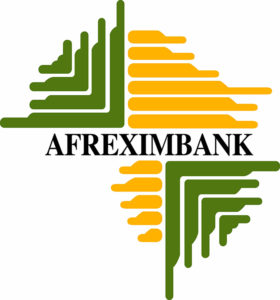Continent-wide digital payment system formally launched
 The Pan-African Payment and Settlement System (PAPSS) was formally launched by the African Export-Import Bank (Afreximbank) at the African Union Extraordinary Summit, which ended recently in Niamey, Niger Republic.
The Pan-African Payment and Settlement System (PAPSS) was formally launched by the African Export-Import Bank (Afreximbank) at the African Union Extraordinary Summit, which ended recently in Niamey, Niger Republic.
The PAPSS, then becomes a continent-wide digital system to facilitate payments and settlements for goods and services in local currencies.
The summit gathered African Heads of states to kick off the operational phase of the African continental free trade area (AfCFTA).
Professor Benedict Oramah, President of Afreximbank during the launch said “the PAPSS is a platform that will domesticate intra-regional payments, save the continent more than $5 billion in payment transaction costs per annum, formalise a significant proportion of the estimated $50 billion of informal intra-African trade, and above all, contribute in boosting intra-African trade.”
“PAPSS is intended to make payments easier in local currencies…If a Nigerian wants to buy goods from Ghana, the Nigerian will pay for the goods in Naira, while the Ghanaian supplier will get paid in the Ghanaian Cedis.”
The platform, which has been developed in collaboration with the African Union, will make it possible for African companies to clear and settle intra-African trade transactions in their local currencies. This will significantly reduce the dependence on hard currencies in regional trade payments.
Today, cross-border payments in Africa typically involve a third currency, such as the US dollar or euro, leading to high costs and long transaction times.
From the foregoing, it means only the deficit between two countries will be settled using dollars.
Afreximbank has previously worked with the West African Monetary Institute (WAMI) to pilot the PAPSS solution in six West African countries.
The PAPSS is therefore a crucial element of the African Union’s work to implement AfCFTA, which has now been signed by 54 of the 55 African Union nations, and ratified by 27 countries.
Nigeria and Benin were the latest countries to sign the landmark trade agreement earlier in July, leaving Eritrea as the only country holding out.
For instance, with the aim to liberalise 90 per cent of trade taking place between the member states, the nations are yet to determine which sectors to protect and which to liberalise, a process that would likely be long and protracted.
Afreximbank is playing a crucial role in AfCFTA’s ambition to create a single African market for goods and services covering 1.2 billion people.
In addition to the PAPSS, the bank is instituting a US$1billion AfCFTA adjustment facility to “enable countries to adjust in an orderly manner to sudden significant tariff revenue losses” as a result of the implementation of the agreement, the bank says.
While the operational phase of AfCFTA has now commenced, there are a number of outstanding decisions that are still pending by the participating nations, including tariffs and rules of origin.
“Governments want to build their reserves, so they tend to prefer exports to markets that issue hard currency. For this reason, a significant amount of cross-border trade occurs informally,” Prof Oramah says.
The issue is compounded by the fact that most traders currently do not have a system that enables them to settle in a secure way.
President Oramah, however concedes that it may not be possible to completely eliminate hard currencies in trade settlements and believes that through the platform it would be significantly reduced.
The AfCFTA is the world’s largest free trade zone by number of member countries with about 1.2 billion people and $3.4 trillion combined gross domestic product (GDP).
Mr Alan Kyerematen, Minister of Trade and Industry has disclosed that Ghana stands to benefit from the AfCFTA in diverse ways including trade facilitation, customs management reforms in addition to single window platforms and the implementation of the WTO trade facilitation agreement.
He said stimulus package for local industries would include, EximBank support, Venture Capital Trust Fund, Ghana Infrastructure Investment Fund, Finance and Technology (Fintech), and Banking reforms, which are some of the channels to access finance to boost the deal.
He said under trade information, the Ghana Commodity Exchange, the Electronic Trade Information (GEPA) and trade fairs and exhibitions would be exploited to advantage.
Under trade related infrastructure, he said roads, ports expansion projects, airports and railways are receiving attention to provide the connectivity linkages.
Mr Kyerematen said enhancing industrial productive capacity, the 1D1F initiative, strategic anchor industries initiatives, One-Region-One Park (Industrial parks and special economic zones), SME development and promotion of standards are some of the traction to steer the AfCFTA.
The dream of the pacesetters of Pan-Africanism has been given a leap and connoisseurs predict the successes of the AfCFTA may out-jump the implementation challenges.
Source: GNA
